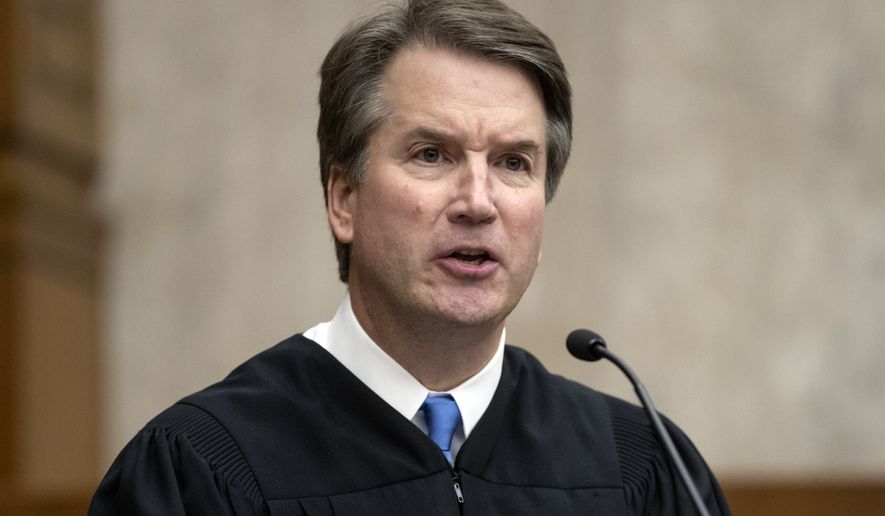The lawyer who battled for illegal immigrant teens seeking access abortions in the U.S. will be one of Democrats’ witnesses against Judge Brett Kavanaugh in next week’s confirmation hearings.
Rochelle Garza served as guardian for several illegal immigrants in Texas who clashed with the Trump administration over their pregnancies, battling all the way to the circuit court of appeals in Washington, where they won their case — over the objections of Judge Kavanaugh.
The Supreme Court later vacated the circuit court’s ruling, but by then the teens had obtained abortions.
Judge Kavanaugh’s role in the case has been studied by those looking for clues as to how he would rule should he win a seat on the high court.
Also on tap to testify next week against Judge Kavanaugh are the chairman of the Congressional Black Caucus, an advocate for broader access to birth control, an advocate for the disabled community and one of the students who was at Stoneman Douglas High School, site of the Valentine’s Day mass shooting this year.
And John Dean, who was President Nixon’s lawyer, will testify “about the abuse of executive power,” according to Democrats who invited him.
In the judge’s corner, meanwhile, is a high-powered list of legal all stars, including former Solicitor General Theodore B. Olson, former Solicitor General Paul Clement and Yale Law School Professor Akhil Amar.
Introducing Judge Kavanaugh will be former Secretary of State Condoleezza Rice, Sen. Rob Portman and and lawyer Lisa S. Blatt.
The hearings start Tuesday with introductions and opening statements, and should stretch through the end of next week.
Both Republicans and Democrats are allowed to call witnesses who will testify to the judge’s experience and suitability for the high court — though those are usually far less influential that the nominee’s own answers to senators’ questions.
Still, Ms. Garza’s appearance is likely to elevate the illegal immigrant-abortion case.
It involved illegal immigrant juveniles, known in government-speak as Unaccompanied Alien Children or UAC, who snuck into the U.S. and were in dorms run by the federal Health Department.
The government had refused to facilitate access to abortion, saying it was not legally able to spend money to take the teens for their appointments or to provide follow-up care later.
With Ms. Garza acting as their guardian, the girls sued, saying they had the same constitutional right to abortion as any citizen.
A district judge agreed with them.
The government appealed, and the case came to a three-judge panel that included Judge Kavanaugh. He and his colleagues, in a 2-1 decision, ruled that the government should have the chance to place the teens with sponsors, who would be in a better position than the government to help them through their decision.
But that ruling was reversed by the full circuit court, ruling en banc.
The Supreme Court declined to hear the case — but said since the teens had already had abortions, and there was no longer a live controversy before them, they vacated the appeals court’s ruling, erasing its value as a precedent.
• Stephen Dinan can be reached at sdinan@washingtontimes.com.
• Alex Swoyer can be reached at aswoyer@washingtontimes.com.




Please read our comment policy before commenting.